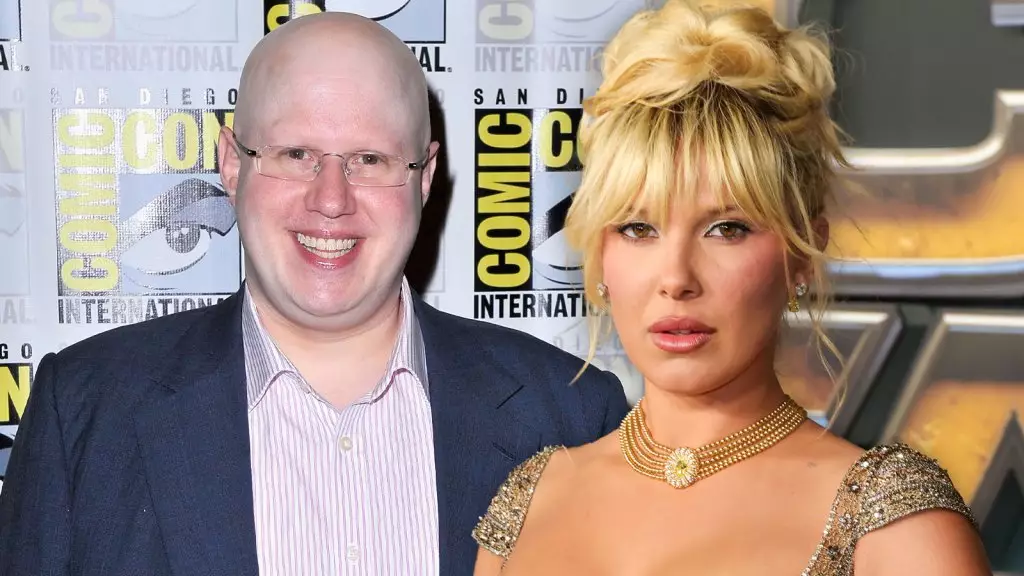The recent exchange between British actor Matt Lucas and young star Millie Bobby Brown sheds light on a troubling undercurrent of societal behavior towards celebrityhood. Lucas felt compelled to apologize for what he considered a light jab based on his character from “Little Britain.” This situation demonstrates a need to critically examine the culture of celebrity scrutiny, particularly directed at young women. Brown’s poignant remarks reveal a world where the public feels entitled to judge an individual not just for their work, but also for their evolving identity.
Feminist Perspectives on Media Critique
Brown’s comments went beyond a simple plea for understanding; they resonate deeply with the continuous struggle against the hypercritical lens through which society views young female figures. To her point about journalistic integrity—or the lack thereof—it’s disheartening that the media often prioritizes sensationalism over constructive narratives. Brown aptly labeled it as “bullying,” challenging the notion that public critiques constitute valid journalism. What Brown articulates poignantly is that much of the media landscape is riddled with narratives crafted solely for clicks, often wielded by individuals who should, under feminist principles, be championing young women’s rights to define their own paths.
Recognizing the Shift in Expectations
Moreover, the expectation that celebrities remain static—frozen in time—is nothing short of an antiquated, patriarchal approach to women in the public eye. Brown’s statement about people not evolving with her is reflective of a deeper societal issue: the discomfort some experience when young women assert their identities beyond superficial standards. The outcry against her changing appearance emphasizes established pressures that deem a woman’s worth based on visual consistency rather than personal growth or talent.
Consequences of Public Scrutiny
Even amidst social progress, the dynamics of public commentary have not changed significantly. Brown spotlighted the fact that this scrutiny often comes from unexpected quarters. The critique delivered by other women is particularly disturbing; it reeks of internalized misogyny and highlights the urgent need for solidarity rather than fracture. Women should not serve as gatekeepers for acceptable femininity, yet in the pursuit of validation, some turn against their peers, reinforcing the very oppressive constructs they should resist.
Emma Watson’s Legacy and Millie’s Future
Brown’s struggle recalls Emma Watson’s refreshingly assertive stance in past feminist initiatives, where she touted self-empowerment and encouraged young women to embrace their true identities. There’s a call to action here—not only from journalists but from the audience who consumes this content. Each click on an article that shames or harasses merely reinforces harmful norms. In a digital age where young women are often depicted through a lens of skepticism and shame, we must prioritize empathy and understanding over cynicism.
The discourse surrounding Millie Bobby Brown’s looks is symptomatic of a wider societal ailment—a relentless need to box individuals into outdated stereotypes. Instead, as audiences and consumers of media, we need to challenge ourselves to change the narrative, allowing young women to be celebrated for their journey rather than derided for their transformation.


Leave a Reply